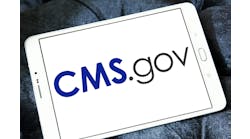Google has once again revised the list of apps that aren’t allowed in its app store, this time adding ones that enable users to generate fake identification. These apps are usually billed as a way to create ID cards for pranking, but they’re often used for less wholesome reasons, such as attempting to get into a facility or purchase items that are age-restricted.
The banned fake ID apps enable users to create a variety of fake identification, including driver’s licenses, passports, identification cards, Social Security number cards, diplomas, and more. Though many apps offer low-quality content, others are very capable of creating realistic IDs that mimic existing government identification.
Google recently added a new category to its Developer Policy Center detailing another unacceptable genre: apps that are “Enabling dishonest behavior.” The company describes those as “apps that help users to mislead others,” among them being fake ID generators.
Google specifically says “any claim that an app is a ‘prank’” app or something similar won’t be given an exception to this ban. The company already bans apps that are misleading, make deceptive device settings changes, and more. A quick search shows many fake ID generator apps still listed in Google Play (for now).
Of course, Google’s crackdown on these apps doesn’t mean you can let your guard down. Many fake ID generators are still available online, and anyone with access to Photoshop can make one manually. As well, though Google Play itself will stop offering the apps, anyone can download a generator’s APK and side load it onto their device.

